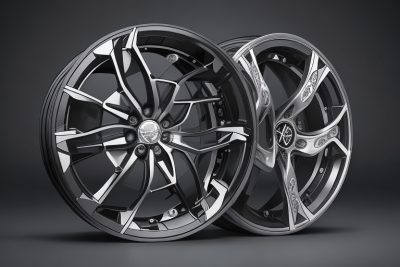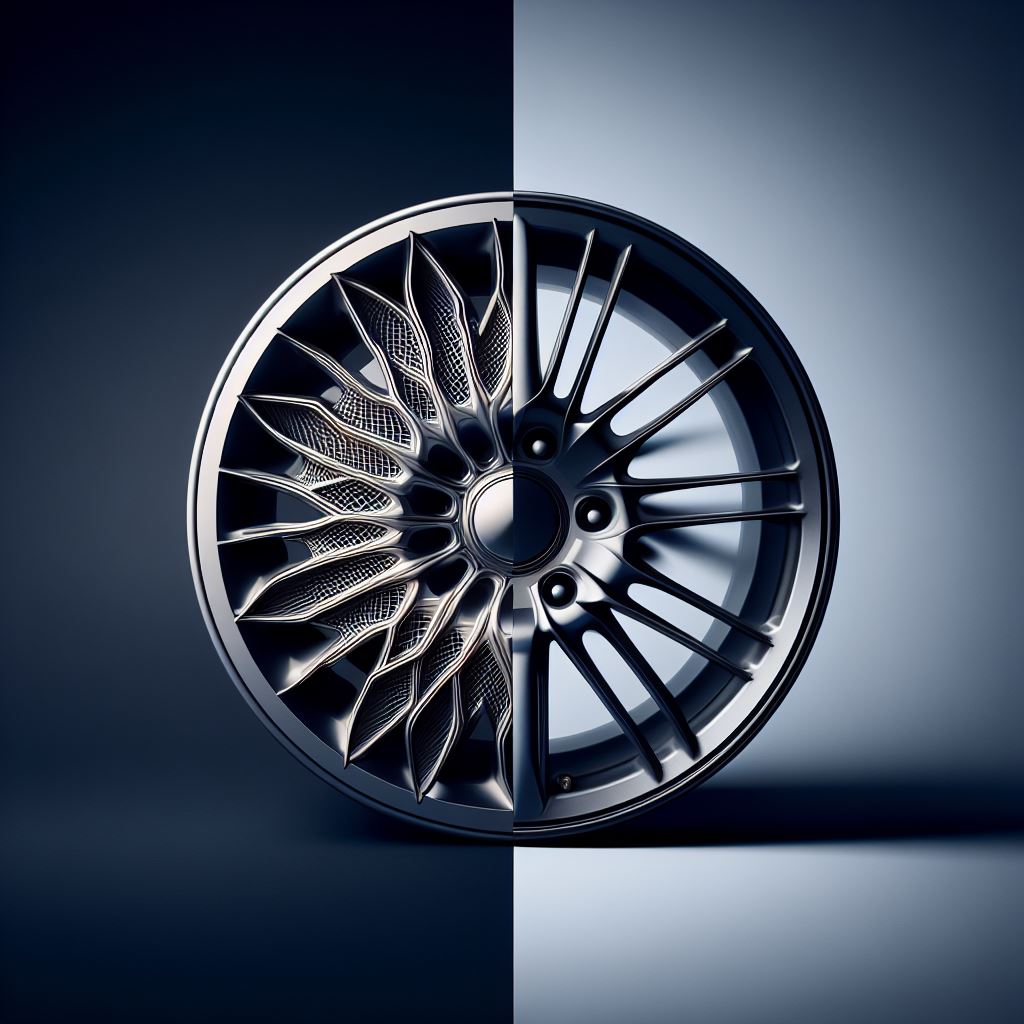When it comes to your vehicle’s wheels, the choice between alloy and steel can be a crucial one, impacting not only the aesthetics but also the performance and overall driving experience. Wheels are more than just functional components; they play a significant role in the safety, handling, and fuel efficiency of your car. As you embark on the journey of selecting the right wheels for your vehicle, you’ll find yourself confronted with the alloy vs. steel debate.
In this article, we will explore the differences between these two options to help car owners make an informed decision. By considering factors such as budget, appearance, and driving conditions, readers will discover which wheel type is better suited for their specific needs.
Key Takeaways
- Alloy wheels are more expensive and lighter than steel wheels.
- Steel wheels are heavier and more durable than alloy wheels.
- Alloy wheels offer better handling and performance, while steel wheels may hinder vehicle performance due to their increased weight.
- Steel wheels are a more affordable option and are suitable for varying road conditions and long-distance driving.

Cost Comparison: Alloy Wheels Vs Steel Wheels
When comparing the cost of alloy wheels to steel wheels, it’s important to consider the long-term benefits and drawbacks of each option.
Alloy wheels are generally more expensive than steel wheels due to their lighter weight and improved performance. While the initial investment may be higher, alloy wheels offer advantages such as better handling, increased fuel economy, and improved acceleration. They also have a premium and sporty look, enhancing the overall appearance of the car.
However, alloy wheels are prone to cracks and bends upon impact, requiring regular maintenance and complex repair work.
On the other hand, steel wheels are more affordable and durable. They’re suitable for varying road conditions and are easier to repair.
Ultimately, the choice between alloy wheels and steel wheels depends on factors such as budget, desired appearance, and specific driving needs.
Performance and Handling: Alloy Wheels Vs Steel Wheels
He prefers alloy wheels over steel wheels for their superior performance and handling. Alloy wheels are known for their lightweight construction, which improves the overall handling of the vehicle. The reduced weight allows for better acceleration, improved fuel economy, and enhanced road grip.
Alloy wheels also offer better cornering and steering capabilities, providing a more responsive and agile driving experience. On the other hand, steel wheels, while more durable and affordable, can be heavier and may hinder vehicle performance due to their increased weight. This can result in decreased fuel efficiency and a less dynamic driving experience.
Overall, alloy wheels are the preferred choice for those seeking optimal performance and handling in their cars.
Aesthetics and Exterior Appearance: Alloy Wheels Vs Steel Wheels
The appearance of a car is greatly influenced by the choice between alloy wheels and steel wheels.
Alloy wheels have a sleek and modern look that adds a touch of elegance to any vehicle. They’re available in a wide range of designs and finishes, allowing car owners to personalize their ride according to their preferences.
On the other hand, steel wheels have a more traditional and rugged appearance. While they may not have the same visual appeal as alloy wheels, they can still give a car a classic and timeless look.
Ultimately, the decision between alloy wheels and steel wheels comes down to individual taste and the desired aesthetic for the car. Both options have their own unique charm and can greatly enhance the exterior appearance of a vehicle.
Durability and Maintenance: Alloy Wheels Vs Steel Wheels
Alloy wheels require regular maintenance to check for cracks or bends, whereas steel wheels are known for their durability and low maintenance.
When it comes to durability, steel wheels have the upper hand. They’re stronger and less likely to crack or bend upon impact, making them a reliable choice for those who prioritize longevity.
On the other hand, alloy wheels are more susceptible to damage and may require frequent checks to ensure their structural integrity.
In terms of maintenance, steel wheels are relatively low maintenance. They’re easier to repair, and the process is often quick and inexpensive.
Alloy wheels, however, can be more complex and time-consuming to repair, which may result in higher costs.
Customization Options: Alloy Wheels Vs Steel Wheels
When considering customization options, drivers can choose between alloy wheels or steel wheels for their car, depending on their preferences and budget.
Alloy wheels offer a wide range of design and size options, allowing drivers to personalize their vehicle’s appearance. These wheels have a premium and sporty look, enhancing the overall exterior aesthetics of the car.
On the other hand, steel wheels are more simplistic in design but are more affordable, making them a practical choice for those on a tighter budget. While alloy wheels are known for their lightweight and improved performance, steel wheels are stronger and more durable, making them suitable for varying road conditions and long-distance driving.
Ultimately, the decision between alloy wheels and steel wheels comes down to individual preferences and the specific needs of the driver.
Practicality and Suitability for Different Driving Conditions: Alloy Wheels Vs Steel Wheels
One important factor to consider is the number of driving conditions where alloy wheels may outperform steel wheels. Alloy wheels offer better handling and performance, making them more suitable for high-performance cars and sports vehicles. Their lightweight construction results in improved acceleration, fuel economy, and overall vehicle responsiveness.
Additionally, alloy wheels provide better road grip, cornering, and steering, enhancing the overall driving experience. However, steel wheels have their advantages as well. They’re more durable and less likely to crack or bend upon impact, making them practical for varying road conditions. Steel wheels are also more affordable and easier to repair, making them a suitable choice for long-distance driving and off-roading.
Ultimately, the decision between alloy wheels and steel wheels depends on factors such as budget, desired appearance, impact on vehicle performance, and specific driving conditions.
Factors to Consider When Choosing: Alloy Wheels Vs Steel Wheels
The cost and desired appearance are two factors to consider when choosing between alloy wheels and steel wheels.
Alloy wheels are generally more expensive but offer a premium and sporty look to enhance the exterior appearance of a car. On the other hand, steel wheels are more affordable and have a simpler and more understated appearance.
Another important factor to consider is the impact on handling and fuel efficiency. Alloy wheels are lighter, resulting in better handling, increased fuel economy, and improved acceleration. Steel wheels, although heavier, are more durable and suitable for varying road conditions.
Additionally, the need for off-roading or long-distance driving should be taken into account. Alloy wheels are more suitable for high-end and sports cars, while steel wheels are a good choice for long trips and practical for different types of roads.
Ultimately, the decision between alloy wheels and steel wheels depends on the individual’s budget, desired appearance, and specific driving needs.
Conclusion
In conclusion, when it comes to choosing between alloy wheels and steel wheels for your car, it ultimately depends on your specific needs and preferences.
Alloy wheels offer advantages such as lightweight nature, improved performance, and aesthetic appeal.
On the other hand, steel wheels are more affordable, durable, and suitable for varying road conditions.
To make the right decision, consider factors like budget, desired appearance, handling, and driving conditions.
By carefully evaluating these factors, you can determine which option is the better fit for your car.
